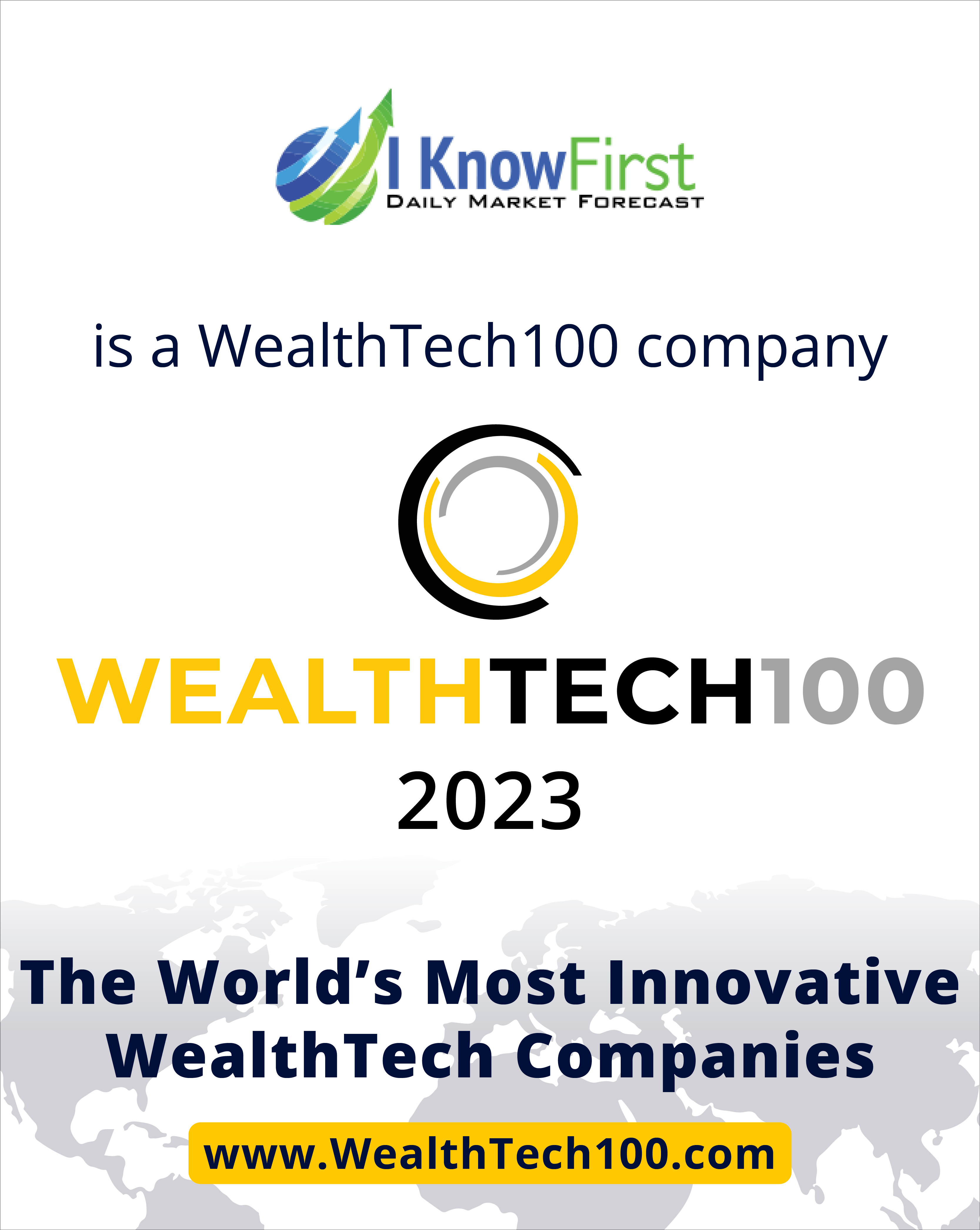Facebook Stock Forecast: Blockchain Bandwagoner or Pioneer?
This article was written by Gabriel Rodan, a Financial Analyst at I Know First.
Summary
- Facebook is a maturing tech giant but has maintained relevance with the youth through Instagram and its over 1 billion monthly active users
- Has faced regulatory pressure and scandal in the last year but is well equipped with human capital and resources to manage regulatory landscape.
- Maintains a firm grasp on social media with Facebook (2.38 billion Monthly Active Users) and Instagram (1 billion MAU) and mobile messaging with WhatsApp (1.5 billion MAU) and Messenger (1.3 billion MAU)
- Newly announced Libra cryptocurrency will leverage Facebooks global network platform and possibly disrupt financial system
- Long term price target of $245 per share but significant resistance at $200
Business Overview
It is difficult to overstate Facebook’s (FB) influence in Silicon Valley and Wall Street. It has 2.38 billion monthly active users and has added over $384 billion to its market cap for investors since its IPO. The company states its mission statement as giving “people the power to build community and bring the world closer together”. People use Facebook to stay connected with friends and family, to discover what’s going on in the world, and to share and express what matters to them.”. It does this not only through its core website but through Instagram, Messenger, WhatsApp, and Oculus which are all relatively high profile platforms in their industries and well known among the general public as well as their core demographics.
Key Trends: Market Risks & Opportunities
Some believe that Facebook is facing an existential crisis in light of an important paradigm shift among its users. The core Facebook website still has the greatest user engagement and revenue among its social media portfolio but is maturing the fastest. The youth and millennial demographic was behind Facebook.com’s original success since Mark Zuckerberg’s college dorm days but the youth are notably flocking from the platform as it has simultaneously become more popular with other demographics. This has marked an important relative change in user engagement between older and younger demographics but Facebook’s saving grace has been a series of prudent acquisitions but particularly Instagram for $1 billion in 2012 which has since transformed the company, expanded its mobile experience and maintained its relevance among the youth. Without Instagram and it’s over 700 million monthly active users, Facebook’s demographic composition would be heavily skewed for users over 30 years of age and without this presence, company would not be nearly as attractive to investors. It has played an important role in transforming the company from a $44 billion company in its post IPO low to the $540 billion behemoth it has become today.
A Maturing Company
Although internet companies and particularly unicorn startups are famous for measuring their performance in terms of user engagement with little regard for profitability, facebook is relatively mature and no longer afforded this luxury. Fundamentally, it is in the advertising space and provides advertising services to the tune of $55.838 billion in 2018, over 37% from its 2017 revenues of $40.653 billion. Given that the overwhelming majority of their revenue comes from third parties advertising on Facebook and Instagram, it is susceptible to their spending habits which are generally short term in nature as there are no long term advertising commitments. If Facebook cannot provide user engagement and effective advertising and then subsequently demonstrate this to customers, they will lose advertising share to competitors which is an increasing risk in light of data privacy concerns. Facebook uses user data to effectively target advertisement but users are becoming increasingly aware of their data use and Facebook has faced increasing criticism and government probes. If it is forced to scale back its data mining policies, it could undermine the effectiveness of its targeted advertising.
Government Action
Being in the internet and information sharing space, Facebook has been significantly hindered by government censorship policy all over the world and this continues to be a risk. This has been especially notable in China, Iran, and North Korea. The Chinese market of almost 1.4 billion people remains untapped and this demonstrates how vulnerable the business is to government restrictions. In China, this ban is based in the deep seeded culture of authoritarianism and severe government censorship but Facebook is vulnerable to government regulation all over the world and in many forms.
Scandal and Aftermath
In recent years, Facebook has been shrouded by negative press regarding security breaches and improper access to or disclosure of data which have hurt their reputation and have possibly adversely affect their future business dealings. The most important implication of this is increasing regulatory scrutiny. Following the Cambridge Analytica scandal where the political consulting firm harvested data of over 87 million facebook users without their consent, Facebook executives including CEO Mark Zuckerberg were forced to testify before Congress and over $100 billion was wiped from their market cap in a matter of days. In the aftermath, they agreed to pay up to a $5 billion fine to the FTC which is manageable considering that they have over $50 billion in cash and cash equivalents. This fine is a secondary concern, behind the question of how changing data and privacy practices will change the business. Luckily Facebook has the resources in the form of money and human capital to defend itself from and comply with possible regulations but the risk remains of regulation remains.
Beneficiary of Advertising Paradigm Shift
Facebook continues to benefit from the growth of advertisement as an internet service. In the 21st century it has defined a metamorphosis in advertising. Large and small businesses alike are flocking to market their brand and sell their products on the internet and Facebook will continue to benefit from this trend in the foreseeable future.
Cryptocurrency Ecosystem
In recent years, Bitcoin along with other blockchain based cryptocurrencies have taken the world by storm. Speculators and investors were caught in a frenzy of buying and this climaxed in December of 2017 when newly introduced Bitcoin futures broke $20,000 per Bitcoin, a far cry from Bitcoins price of $5.3 on January 1st of 2012. The fuel behind this frenzy has been excitement pertaining to the use of blockchain technology decentralized from any single government or business entity that can be used to make transactions. In its meteoric rise and through a series of booms and crashes, Bitcoin prices have been defined by one thing above all: Volatility. This is not conducive to its success as a transactional vehicle and Bitcoin still faces many challenges on its road to widespread adoption.
Libra-Facebook’s Efforts
Facebook has recently announced big plans to roll out its own cryptocurrency in an effort that could disrupt global financial systems. They are calling this “Project Libra” and will name their coin the Libra. Their goal with the Libra is to provide accessible, better, cheaper and more transparent financial services by leveraging their platform (WhatsApp, Facebook, Instagram) for transactions. An important difference between the Libra and popular cryptocurrencies is that it will be tied to a basket of assets to prevent wild price fluctuations. They expect to have it developed and on their platform by 2020 and have partnered with Mastercard, PayPal, Coinbase, eBay, Uber and Lyft among others in what’s being called the Libra Association. These partners are all leaders blockchain or related industries that are likely looking to hedge future disruption of their core businesses at the hands of blockchain technology by being involved in this project. It is important to note that the Libra Association is a subsidiary of Facebook and will operate independently as a consortium of 100 members.
Value Proposition
At this point in time it is difficult to determine how exactly this project will contribute to FB earnings and valuation since it will be controlled by the 100 members of the Libra Association and there ownership structure remains unclear but there is an obious value proposition for Facebook. The white pages suggest that ownership will be equal among all founding members of the Libra Association of which there will be 100 but Facebooks value proposition will likely extend beyond this. It has launched, Calibra, a subsidiary that will work much like Venmo. Facebook will li kely make some sort of commision on future payments made through its network which reaches over 2.38 billion people through Facebook, Instagram, and WhatsApp.
Acquisitions and Competitive Space
Facebook’s two most important platforms excluding Facebook.com are Instagram and WhatsApp which it purchased for $1 billion and $19 billion respectively. As a result, Facebook dominates both the photosharing sector through Instagram and Facebook and the messaging sector through Whatsapp and Messenger everywhere but China. In the US alone, Facebook takes 83% of social ad spending and has made over 90 acquisitions since 2007, at least 39 of which have shut down and could have represented future competition. This domination has lead the FTC to open an antitrust probe into Facebook and some of their competitors such as Google.
Valuation
Facebook is currently trading at a P/E of 27.97, P/S of 9.3, and their EV to EBITDA ratio is 17.62. Taking into consideration Facebooks growth rates and competitive advantage relative to their peers, we can deduce that they should trade at a premium. They have huge potential to leverage existing user base for use of the Libra and this may have significant financial impact on the company in the future. Assuming EV/EBITDA of 20, debt of $7.21 billion and $45.24 billion in cash , a fair market cap for Facebook would be $588 billion. This translates to $245 per share assuming 2.4 billion shares outstanding.
Technical Outlook
FB has been in recovery mode since it bottomat at $123 per share on December 24th of 2018 and is at $188.47 per share, still below its 2018 high of $218.62. In the last 4 months it has been trading within the range of $160 and $198, the low of which it has tested three times, most recently on June 3rd when it was announced that the FTC had launched an antitrust probe. The nearest significant price level to the upside is near 200 dollars per share and this is the first bullish price target.
Conclusion
Facebook’s Libra is a bold move by the company. Although it does not offer the autonomy of other cryptocurrency blockchains such as Bitcoin and Ethereal, It has immense potential to disrupt the global financial payment system if effectively rolled out to Facebook’s over two billion users. Since it has been announced it has drawn some controversy for its expanding influence and this has only fanned the flames in Washington as regulators struggle to manage Facebook’s dominance.
Facebook Long Term Bullish Forecast
This is the I Know First FB stock prediction for the next year. It currently has a positive outlook with a signal strength of 385.71 and predictability indicator of 0.57 for the next year.
Past I Know First Success with FB Stock Prediction
On April 27th, 2019, the I Know First Algorithm issued a bullish forecast for FB, with 3-months signal of 6.09 and predictability of .34. Facebook gained more than 15% during that 3-months forecast.
To subscribe today click here.
Please note – for trading decisions use the most recent forecast





















